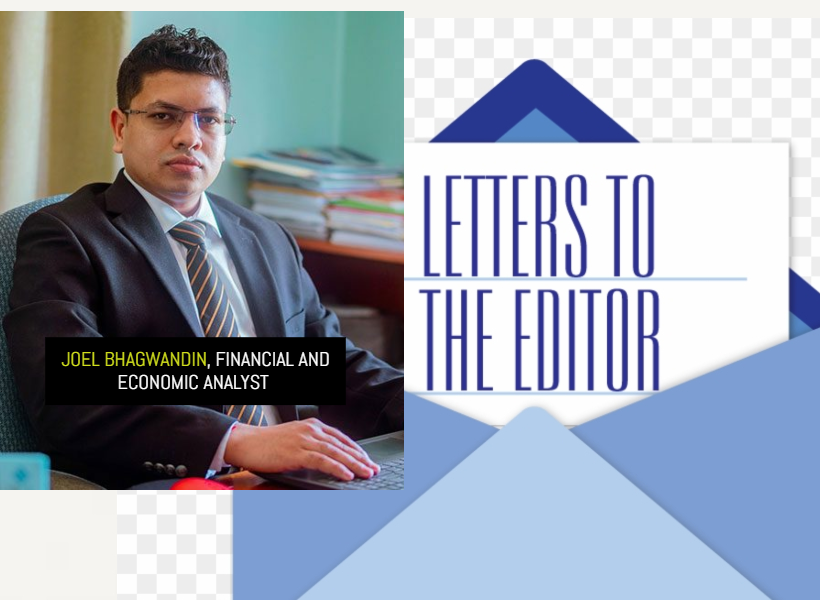Dear editor,
Further to my letter dated October 2nd, 2023, in reference to Christopher Ram’s allegation that the pre-contract costs of US$460 million is inflated by US$92 million, and that this is equivalent to fraud, and where he further accused the government of facilitating a fraudulent act, I had promised to obtain the financial statements and verify the authenticity of his allegations.
To this end, I have obtained the statements, did my own assessment and research, and I am now in a position to report my findings. First, let me say that Christopher Ram is misleading the country largely because he’s committed a multiplicity of errors, which is dealt with hereunder.
According to Christopher Ram, he said that he examined the financial statements of ExxonMobil Guyana, Hess and CNOOC (Co-ventures) up to 2015 to arrive at his pre-contract cost of US$368 million. This is an error on his part because pursuant to the Petroleum Agreement (2016), Annex C, Section 3 (k) (Annex C pg.12), states the following in relation to the Pre-Contract Costs:
“Costs incurred by the Contractor in connection with petroleum operations carried out pursuant to the 1999 Petroleum Agreement, which shall include: (1) four hundred and sixty million, two hundred and thirty-seven thousand and nine hundred and eighteen United States dollars (US$460,237,918) in respect of all such costs incurred under the 1999 Petroleum Agreement between January 1, 2016 and the effective date which shall be provided to the Minister on or before October 31, 2016 and such number agreed on or before April 30, 2017. For purposes of this paragraph, the term Pre-Contract Costs include contract costs, exploration costs, operating costs, service costs and general and administrative costs and annual overhead charge as those terms are defined in the 1999 Petroleum Agreement”.
Notably, the Petroleum Agreement was signed in October 2016, hence, in accordance with the above clause, the Pre-Contract costs included costs up to 2016 and agreed amounts on or before April 30, 2017, and NOT only up to 2015 which Christopher Ram has inadvertently considered.
Having examined ExxonMobil’s and its Co-ventures financial statements for the period up to 2016, and 2017, total (cumulative) expenses up to 2016 amounted to US$382.3 million and in 2017, total expenses for that year amounted to US$109.3 million, giving rise to a total up to 2017 of US$491.6 million. It is therefore unlikely that the Pre-Contract Costs are inflated (subject to verification through the cost recovery audit by GRA), given that a portion of the costs incurred in 2017 is part of the agreed Pre-Contract costs of US$460.2 million.
However, it is important to note that one cannot determine the Pre-Contract Costs by only looking at the sum total of expenses reported on the financial statements for a number of reasons, for example:
• The accounting for recoverable costs in the cost bank pursuant to the Petroleum Agreement is determined on a cash basis, whereas the cost accounting for statutory reporting is done on an accrual basis. So for instance, the acquisition of equipment will be subject to depreciation charges over the life of the asset, which would effectively reduce the book value on the balance sheet. But the amount that is recovered is based on the original acquisition cost.
• During the period 1999-2014, costs were incurred before the establishment of local branches in Guyana. This explains why all of the costs would not have been reflected under the local subsidiaries’ financials but would have been accounted for by the parent companies.
With the foregoing in mind, Christopher Ram needs to be much more circumspect and responsible in his allegations because he is not always correct. Worse, he’s accused the government of facilitating fraudulent practices. One needs to be mindful that he’s not been involved in the audit, and clearly, he’s not consulted with the industry and other stakeholders to have a better understanding of the issue that he’s formed an unsubstantiated, carelessly misleading opinion.
In closing, it is the Guyana Revenue Authority (GRA) that is the lead on the cost recovery audit, and it is the GRA that would be in an authoritative position, having conducted the audit, to pronounce on whether the Pre-Contract Costs were inflated or not.
Yours respectfully,
Joel Bhagwandin











